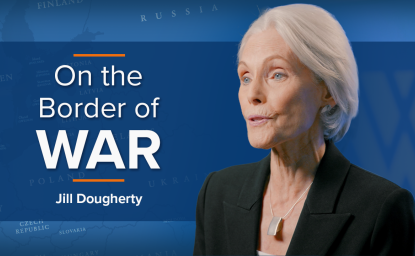The Cost of Action in Iraq
President Bush has made a forceful case against Saddam Hussein based on the costs of inaction. Former Congressman Lee Hamilton argues that the costs and risks of action must now be explained.
President Bush has made a forceful case against Saddam Hussein based on the costs of inaction. Former Congressman Lee Hamilton argues that the costs and risks of action must now be explained.
The United States has presented its case against Saddam Hussein to the American people and the international community, and barring a drastic turn of events war in Iraq appears likely, even imminent. But while President Bush has made his case based on the potential costs of inaction in Iraq, he has not yet laid out the prospective cost and risks of action.
It is clear that Iraq is not complying with Resolution 1441. Iraq has not provided evidence of disarmament or accounted for vast stocks of chemical and biological agents. Iraq’s regime has obstructed inspections and hid weapons of mass destruction, while maintaining troubling relations with some terrorist elements. Given Saddam Hussein’s past behavior, these revelations present a clear – though not necessarily imminent – threat to American national security; continuing inspections that don’t work would enable this threat to grow, while undermining the credibility of the U.S. and the U.N, and the stability of the region.
But if the costs of inaction are too much for us to bear, what are the costs of action? With growing deficits and pending tax cuts, we need to have a clear plan for how to pay for this war and the costs of a potential occupation. The real economic question is long-term: how will the international and American economy be affected by unstable oil prices and large spending increases on national security and homeland defense?
The devastation of a potential war has also not been addressed. A desperate Saddam Hussein could use a scorched earth policy that includes attacks on Israel, the Kurds and other internal opposition. The worst-case scenario is that he is able to use chemical and biological weapons to inflict severe casualties on civilians or American troops. The Iraqi army may also be positioned in heavily populated areas, inviting civilian casualties from U.S. strikes. The American people have simply not been prepared for the possibility of substantial U.S. casualties or civilian deaths in a war that may involve chemical and biological weaponry.
The Iraq occupied by victorious American troops may be beset with a humanitarian crisis. We should be prepared for a massive refugee problem, with hundreds of thousands of displaced Iraqis and serious food and water shortages. If Saddam Hussein sets fire to Iraq’s oil fields as he did in Kuwait, an environmental catastrophe will further complicate our efforts. The immediate challenges will thus be severe: American forces will have to secure Iraq’s weapons of mass destruction, manage Iraqi oil fields, prevent an ethnically and religiously divided Iraq from falling into internal conflict, and provide huge amounts of humanitarian aid.
The long-term task of stabilizing and reconstructing Iraq will take more than a mere two years of American involvement – as the administration has testified; it will require a sustained program of aid and occupation. President Bush should give the American people his view of how long U.S. troops will remain in the country and the region, and indicate what regime will rule Iraq after a regime-change. Will an invasion of Iraq prompt a transition to a different and disarmed regime, or will it initiate a fundamental transformation of Iraq into a stable nation with democratic principles? If our ultimate objective is to set the region on a course towards peace and stability, then our commitment to a post-Saddam Hussein Iraq must be substantial over a number of years, and accompanied by a regional strategy that includes an Israeli-Palestinian settlement.
Our chances of success in rebuilding Iraq will be much greater if we act with broad international support. Working with friends and allies reduces anti-American backlash to war, lessens the potential for increased terrorism against Americans, and spreads the responsibilities of reconstruction. President Bush should state that an international effort to rebuild Iraq while working towards a more peaceful and prosperous Middle East is preferable to an isolated American occupation force that could become a target in Iraq, and a magnet for anti-American resentment abroad.
The tumult within NATO and the U.N. this past week indicates the extent to which the international system is at stake in Iraq. While we may not get everyone to agree with us, we should not turn our backs on the diplomatic process. Forfeiting the relevance of NATO and the Security Council and isolating ourselves in post-Saddam Hussein Iraq is a high price to pay for disarmament. President Bush must continue his extraordinary efforts to build and maintain the broadest possible coalition.
The consequences of war can never be foreseen. All of us want a war in Iraq to be swift and bloodless, and want the aftermath to go smoothly. Addressing these challenges is not an argument against war; it is a matter of preparing ourselves and our allies for the risks of war and its aftermath, while acknowledging the immensity of the task.


